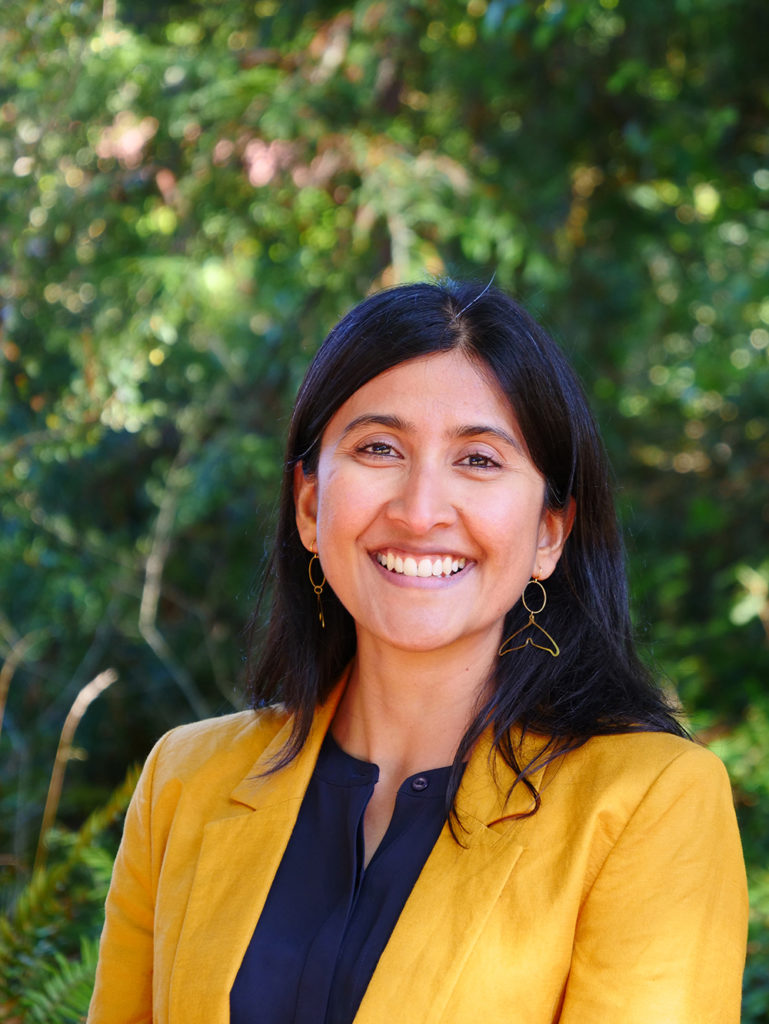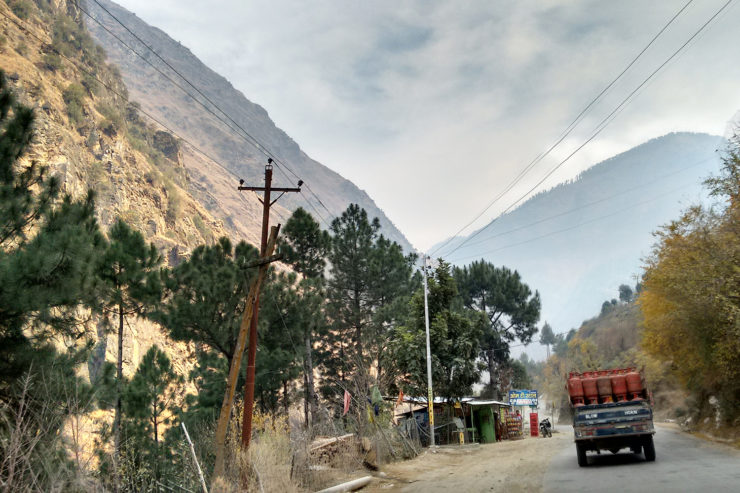Dr. Deepti Chatti joined the Schatz Energy Research Center this fall as a faculty associate, and is an Assistant Professor in Humboldt State’s Environmental Studies department.
Maia: What is the role of social science in developing appropriate energy tech?

Deepti: The social sciences are crucial to developing appropriate energy technologies. They allow us to understand what people care about and why, and to analyze the myriad other non-technical realities that go into determining how energy technologies will be made and used. The social sciences also help us understand what specific energy uses actually mean to people.
What an energy specialist may call “household energy use” in an abstract sense is actually comprised of intimate home activities of cooking and feeding one’s family, or bathing one’s baby, or keeping an elderly parent warm in the winter. What may be a “project outcome” to an energy specialist is somebody’s real everyday life.
Maia: Based on your research, what would you most want energy specialists to consider as they design technological innovations for rural communities which are inclusive of women’s needs?
Deepti: I study how rural families in India make everyday energy decisions which affect their health and global climate change. I analyze the long history of development interventions in rural Indian kitchens, attempting to change the technologies that people use to cook their everyday meals. My research over the past six years has shown me that even well-intentioned energy projects from the global North sometimes assume that rural communities, and particularly rural women in the global South, are ignorant or resistant to change. All my empirical evidence shows me that is not true; I find that rural families are constantly changing and adapting to their new social, cultural, economic, political, and environmental landscapes.
My interlocutors in the rural Indian Himalayas are deftly balancing changing agrarian patterns, economic conditions, and labor demands. They are navigating dynamic gender and caste hierarchies at home and in their communities. They are also innovating energy technologies on their own. My research ethnographically analyzes why and how families make the energy decisions they do.
Energy systems are integral to understanding the social inequalities of our times.
Maia: This spring, you’ll be teaching a senior seminar on Energy Justice (ENST 480), on Monday and Wednesday evenings. Can you share a bit about the course, and who might want to enroll?
Deepti: My approach to the Energy Justice seminar that I have developed for Spring 2020 is to introduce students to social science and humanistic approaches to studying energy issues. Energy systems are integral to understanding the social inequalities of our times. This class will unpack energy topics through a social justice lens, by understanding colonialism, empire, class, gender, race, and so on. The class is designed as an advanced seminar, and we will read a variety of texts from history, geography, gender studies, and science and technology studies.
Deepti Chatti is an Assistant Professor of Environmental Studies at Humboldt State. She is an interdisciplinary scholar of the environment whose research analyzes the social equity challenges that undergird sustainable development projects to improve energy access in India. Her work contribues to political ecology, feminist science and technology studies, energy geographies, and South Asian studies.
Deepti received a doctorate from Yale University for her research on development efforts to expand energy access to low income families in rural India. Her dissertation focused on “clean cooking” household energy transitions which attempt to abolish the ubiquitous mud stove (mitti ka chulha) from the kitchens of rural India for a variety of health, environmental, and social reasons. Previously, she worked as an environmental engineer in California, and as an environmental public policy researcher in India at The Energy and Resources Institute (TERI). In addition to her PhD and MPhil from Yale’s School of Forestry and Environmental Studies, with a graduate certificate in Women’s, Gender, and Sexuality Studies, she has a graduate degree in environmental science and engineering from Stanford University, and an undergraduate degree in civil engineering from Osmania University.
















